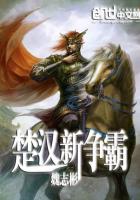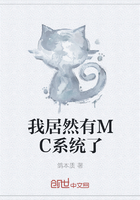'We have good reason to welcome pilgrims,' she said. 'It was a pilgrim who showed us what life is. We were living forgetful of God, and God punished us almost to death. We reached such a pass last summer, that we all lay ill and helpless with nothing to eat. And we should have died, but that God sent an old man to help us -- just such a one as you. He came in one day to ask for a drink of water, saw the state we were in, took pity on us, and remained with us. He gave us food and drink, and set us on our feet again; and he redeemed our land, and bought a cart and horse and gave them to us.'
Here the old woman entering the hut, interrupted the younger one and said:
'We don't know whether it was a man, or an angel from God. He loved us all, pitied us all, and went away without telling us his name, so that we don't even know whom to pray for. I can see it all before me now! There I lay waiting for death, when in comes a bald-headed old man. He was not anything much to look at, and he asked for a drink of water. I, sinner that I am, thought to myself: "What does he come prowling about here for?" And just think what he did! As soon as he saw us, he let down his bag, on this very spot, and untied it.'
Here the little girl joined in.
'No, Granny,' said she, 'first he put it down here in the middle of the hut, and then he lifted it on to the bench.'
And they began discussing and recalling all he had said and done, where he sat and slept, and what he had said to each of them.
At night the peasant himself came home on his horse, and he too began to tell about Elisha and how he had lived with them.
'Had he not come we should all have died in our sins. We were dying in despair, murmuring against God and man. But he set us on our feet again; and through him we learned to know God, and to believe that there is good in man. May the Lord bless him! We used to live like animals; he made human beings of us.
After giving Efím food and drink, they showed him where he was to sleep; and lay down to sleep themselves.
But though Efím lay down, he could not sleep. He could not get Elisha out of his mind, but remembered how he had seen him three times at Jerusalem, standing in the foremost place.
'So that is how he got ahead of me,' thought Efím. 'God may or may not have accepted my pilgrimage but He has certainly accepted his!'
Next morning Efím bade farewell to the people, who put some patties in his sack before they went to their work, and he continued his journey.
XII
Efím had been away just a year, and it was spring again when he reached home one evening. His son was not at home, but had gone to the public-house and when he came back, he had had a drop too much. Efím began questioning him. Everything showed that the young fellow had been unsteady during his father's absence.
The money had all been wrongly spent, and the work had been neglected. The father began to upbraid the son; and the son answered rudely.
'Why didn't you stay and look after it yourself?' he said. 'You go off, taking the money with you and now you demand it of me!'
The old man grew angry, and struck his son.
In the morning Efím went to the village Elder to complain of his son's conduct. As he was passing Elisha's house, his friend's wife greeted him from the porch.
'How do you do, neighbour,' she said. 'How do you do, dear friend? Did you get to Jerusalem safely?'
Efím stopped.
'Yes, thank God,' he said. 'I have been there. I lost sight of your old man, but I hear he got home safely.'
The old woman was fond of talking:
'Yes, neighbour, he has come back,' said she. 'He's been back a long time. Soon after Assumption, I think it was, he returned. And we were glad the Lord had sent him back to us! We were dull without him. We can't expect much work from him any more, his years for work are past; but still he is the head of the household and it's more cheerful when he's at home. And how glad our lad was! He said, "It's like being without sunlight, when father's away!"
It was dull without him, dear friend. We're fond of him, and take good care of him.'
'Is he at home now?'
'He is, dear friend. He is with his bees. He is hiving the swarms. He says they are swarming well this year. The Lord has given such strength to the bees that my husband doesn't remember the like.
"The Lord is not rewarding us according to our sins," he says. Come in, dear neighbour, he will be so glad to see you again.'
Efím passed through the passage into the yard and to the apiary, to see Elisha. There was Elisha in his grey coat, without any face-net or gloves, standing, under the birch trees, looking upwards, his arms stretched out and his bald head shining, as Efím had seen him at the Holy Sepulchre in Jerusalem: and above him the sunlight shone through the birches as the flames of fire had done in the holy place, and the golden bees flew round his head like a halo, and did not sting him.
Efím stopped. The old woman called to her husband.
'Here's your friend come,' she cried.
Elisha looked round with a pleased face, and came towards Efím, gently picking bees out of his own beard.
'Good day, neighbour, good-day, dear friend. Did you get there safely?'
'My feet walked there, and I have brought you some water from the river Jordan. You must come to my house for it. But whether the Lord accepted my efforts. . . .'
'Well the Lord be thanked! May Christ bless you!' said Elisha.
Efím was silent for a while, and then added:
'My feet have been there, but whether my soul, or another's, has been there more truly . . .'
'That's God's business, neighbour, God's business,' interrupted Elisha.
'On my return journey I stopped at the hut where you remained behind.
. . .'
Elisha was alarmed, and said hurriedly:
'God's business, neighbour, God's business! Come into the cottage, I'll give you some of our honey.' And Elisha changed the conversation, and talked of home affairs.
Efím sighed, and did not speak to Elisha of the people in the hut, nor of how he had seen him in Jerusalem. But he now understood that the best way to keep one's vows to God and to do His will, is for each man while he lives to show love and do good to others.
1885.















